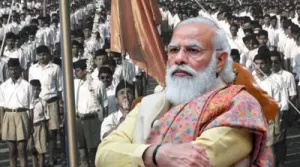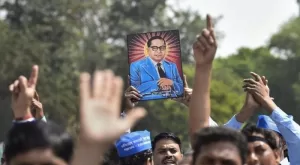The following are poems by Nabaneeta Dev Sen, translated from the Bengali original by her daughter, Nandana Dev Sen. The poems are from the collection, Acrobat, courtesy of the publisher, Archipelago Books. They have been published by us courtesy: The Wire.
Acrobat
She thought she knew acrobatics rather well.
That she could juggle time with both hands,
Play with the now, right next to the then,
She would make both dance, she thought, fist to fist—
And she would glide, so smooth, along the tightrope,
She thought she could do absolutely anything at all.
Only once in your life will the rope shiver.
❈ ❈
Take Back the Night
Man: In the twilight, I could still hear the lark
Woman: The night was moonless, oppressively dark
Man: In the flowering woods, a night fairy walked
Woman: In the Sundarbans the man-eater stalked
Man: In that fragrant springtime air
Woman: Blood-drenched remains lay there
❈ ❈
Right Now: Forever
Time has not the power to extinguish me,
Don’t think for a moment that I wait upon Time.
Let Time keep on playing his absurd battle
game, Every time he strips me, I rise clothed,
without shame; With the force of prayer, of
spells magic and divine, All that was untimely
will turn auspicious, sublime.
In a just war, the rebel stands forever unafraid
For her ally is Eternity, who, divinely arrayed, Guides
her chariot, destroying the enemy line. Thus, a
divisive age will be defeated and spurned— Though
it brings on great wars, it will lose every time; From
all our scriptures, this is the truth I have learned.
Know that I am cherished by an undivided, infinite
age: Time will never have the power to scorch me
with its rage.
❈ ❈
That Girl
Sorrow had chased her.
The girl kept running and
running, What else could she
do?
She hurled the comb in her hand
At sorrow—
And instantly, from the comb’s hundred
teeth Sprouted thousands of trees,
A deep forest swarming with wild
animals. And somewhere among the
growls of tigers, In that haunted
darkness,
Sorrow got lost.
Fear had chased her.
The girl kept running and
running, What could she do?
She threw her tiny bottle of
perfume At fear—
And instantly, the perfume
swelled Into a foaming,
whirling cyclone.
With a deafening roar,
The fierce saffron tide flooded mile after
mile, Sweeping away fear.
The day love chased her
The girl had nothing in her hand.
She kept running and running,
What could she do?
She gouged her heart out from her
breast And flung it at love—
And instantly, that fistful of heart
Sprang up into a range of green mountains, With cascades and caves,
canyons and crests, Mystery
reverberating
In its gorges and its valleys.
The shivering echo
Of stormy winds, the rush of
waterfalls, Its slopes full of shade,
and its peak, Burnt by the sun and
the moon.
Perhaps it was
That dazzling, brimful heart
That didn’t allow
Her lover’s timid love
To advance and grow.
She is chased now by
exhaustion. Empty-handed,
empty-hearted, She keeps
running and running, What
can she do?
The girl tosses behind her
Only a sigh—
And instantly
The flame of her breath
Sets fire to her entire past,
Spreading in every direction
A desert of burning, churning sands.
Now the girl runs without a care,
Both arms held high above her
head— At last
She is chased
Only by her destination.
❈ ❈
Heartbeat
(To Antara)
The meaning of the word “heartbeat”
changed for her suddenly that day.
Just as the tiny bluebell bursts through deep
snow for the first time, all alone, so brave.
Just as the sliver of light falls on one side of
the face, glowing like a fond memory.
Words are flighty. Like fortune’s
goddess, they flit from home to
home,
changing their character, and their heart. The
face of the word “heartbeat” suddenly
hardened, like a cunning moneylender
appearing at the door, clutching the deed of
debts accrued since birth. And so, signing the
bond for her lifetime,
this free woman became a slave to one
word: “heartbeat.”
❈ ❈
Puppet
(To Nandana)
I can’t decide, was it a mistake? Or is it better
this way? Twice now, pretending to be a
goddess,
I’ve created humans out of my desire.
Funnily, though, that’s where the fake goddess act ends.
After that, you revert to being a woman, as before. Good
and bad, dreams, sorrow—it’s all beyond your will again.
So, the puppet’s dance will resume once more, on a
string. Practice makes perfect. Always do your best.
I look into the mirror: do I know this face?
Somewhere it lies hidden, that secret
divine will. Or was it just a momentary
spark,
the celestial celebration of an instant,
an act of pity by a humorist in the
background— this cloud-bursting,
supernatural light?
❈ ❈
Umbilical Cord
(For my mother)
You are in so much pain.
You’re trying to cut the
birth-knot but earth’s umbilical
cord
keeps you tied in twists,
tangled like
our weak and fearful love.
You’re trying hard to be born
into a different, fearless world.
But our restless arms,
unshakeable like the sacred
thread,
coil around your neck—
a blood-drenched umbilical cord.
You will not have the power
to leave the womb of this
earth and escape freely
into a newborn breeze.
You will be bound here—
in pain, in love.
❈ ❈
Out of Reach
You asked for a nameless love, out of reach,
I weaved you a wreath of blooms, each to each.
You want love’s temperate breeze, softly sighing,
I blow you a dark thunderstorm, terrifying.
Your love is detached, afar, chaste to its core,
My love is, in part, love—and, in part, war.
❈ ❈
Make Up Your Mind
Make up your
mind Who do you
want That
woman, or me?
Within me
breathe Two
people—
Make up your
mind Who do you
want That
woman,
Or me?
[Nabaneeta Dev Sen (1938 – 2019) remains one of the most beloved, versatile and prolific Bengali writers of all time. Equally expressive in poetry and prose, fiction and non-fiction, she has over one hundred books to her credit, including compilations of poems, novels, plays, stories, memoirs, academic essays, children’s literature, political columns, literary translations, and multiple volumes of her collected works. Educated in Presidency College and Jadavpur University in Kolkata, and then at Harvard, Berkeley and Indiana Universities, Dr. Dev Sen lived a parallel life as a highly acclaimed international scholar and feminist, and a distinguished professor of comparative literature. Her many honours include the Padma Shri, Sahitya Akademi Award, Bangla Academy Lifetime Achievement Award, Big Little Book Award for Children’s Literature, and Lifetime Achievement Award of the Publishers’ and Booksellers’ Guild. She was the Founder and President of the West Bengal Women Writers’ Association, Soi.
Nandana Dev Sen is a writer, actor and child-rights activist. She is the author of six children’s books, translated into more than 15 languages globally. An award-winning international actor, Nandana has starred in 20 feature films from four continents, and in multiple languages. After studying literature at Harvard and filmmaking at USC, she worked as a book editor, a screenwriter, a child-rights advocate and as Princess Jasmine in Disneyland.]




